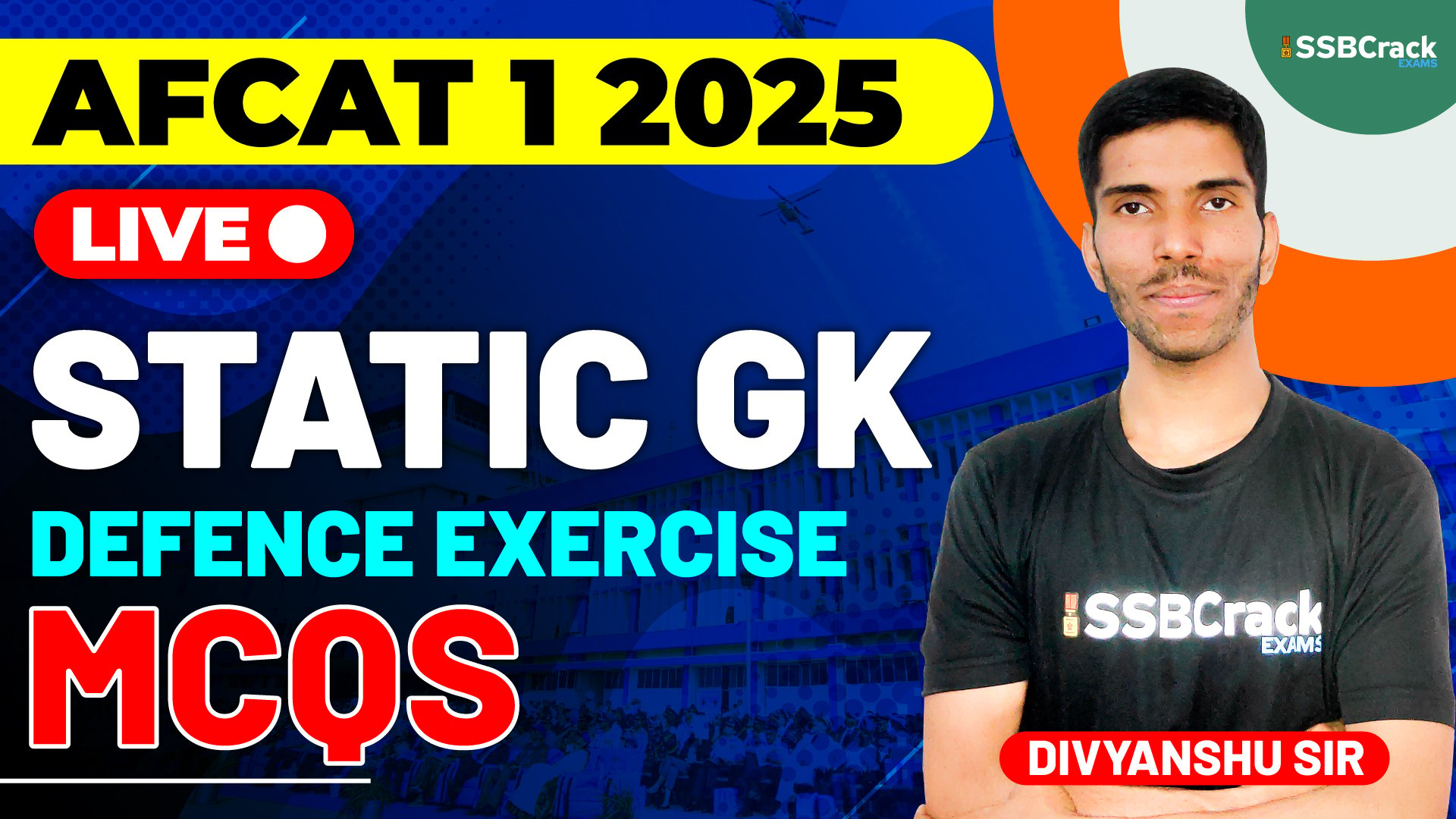Defence exercises play a vital role in enhancing the preparedness and coordination of armed forces. For AFCAT aspirants, knowledge about various national and international defence exercises is crucial for scoring well in the Static GK section. This article provides a comprehensive overview of significant defence exercises relevant to the AFCAT 1 2025 examination.
AFCAT 1 2025 Exam Static GK Defence Exercise MCQs
Types of Defence Exercises
- Bilateral Exercises
- Conducted between two countries to strengthen military cooperation and interoperability.
- Multilateral Exercises
- Involve multiple countries focusing on collective security and coordination.
- Domestic Exercises
- Conducted within the country to test the readiness of armed forces and other agencies.
Major Defence Exercises of India
Bilateral Exercises
- SIMBEX (India-Singapore)
- Aim: Naval cooperation and maritime security.
- Participants: Indian Navy and Republic of Singapore Navy.
- Varuna (India-France)
- Aim: Strengthening naval ties and ensuring maritime safety.
- Indra (India-Russia)
- Aim: Enhancing joint military operations on land, air, and sea.
- Yudh Abhyas (India-USA)
- Aim: Sharing expertise in counter-terrorism and disaster response.
- Shakti (India-France)
- Aim: Focusing on joint counter-terrorism operations.
- Garuda (India-France)
- Aim: Enhancing interoperability between air forces.
Multilateral Exercises
- Malabar
- Participants: India, USA, Japan, and Australia.
- Aim: Maritime security in the Indo-Pacific region.
- RIMPAC (Rim of the Pacific)
- Participants: 26 nations (including India).
- Aim: Ensuring stability and cooperation in the Pacific region.
- COBRA GOLD
- Participants: India and Southeast Asian countries.
- Aim: Strengthening regional security cooperation.
- MILAN
- Participants: Multiple nations.
- Aim: Building friendships and interoperability among navies.
Domestic Exercises
- Vayu Shakti
- Conducted by: Indian Air Force.
- Focus: Demonstrating aerial combat capabilities.
- Tropex
- Conducted by: Indian Navy.
- Focus: Testing naval readiness and operational capabilities.
- Him Vijay
- Conducted by: Indian Army.
- Focus: Mountain warfare preparedness.
- Dakshin Shakti
- Conducted by: Indian Army (Southern Command).
- Focus: Integrated operations in the southern region.
Significance of Defence Exercises
- Strengthening Military Ties
- Enhances coordination and trust among participating nations.
- Improving Operational Readiness
- Tests the preparedness of armed forces for real-time challenges.
- Promoting Regional Security
- Fosters collaboration in combating common threats like terrorism and piracy.
- Learning and Sharing Best Practices
- Facilitates the exchange of strategies and technologies.
Preparation Tips for AFCAT 1 2025
- Focus on Key Exercises
- Memorize the objectives, participants, and significance of major exercises.
- Keep Updated
- Stay informed about recent developments in defence exercises from reliable sources.
- Practice MCQs
- Solve previous year’s AFCAT questions on defence exercises.
- Use Mnemonics
- Create memory aids to retain complex information.
Conclusion
Understanding defence exercises is essential for AFCAT aspirants aiming to excel in the Static GK section. By focusing on their objectives, participants, and outcomes, you can effectively prepare for this topic. Regular practice and staying updated are key to success.








